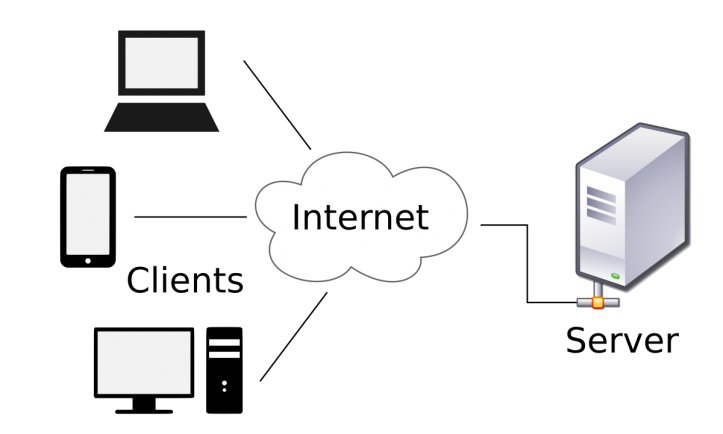In computer lingo, a server is essentially a single piece of hardware or software which provides overall performance for many clients, also known as “clients.” This architecture is sometimes referred to as the client/server architecture.
In most common applications, the operating system, communication protocols, database, and web server are the components of a server. Some examples of common server applications include HTTP servers, mail servers, and web services.

A server allows a user to connect to a remote web server, retrieve and upload data from the server, and communicate with other clients over the network. It is often used as the central location for all of an organization’s data, which allows for seamless network connectivity. Clients can either be desktop computers or laptops, depending on how much physical space is available.
The primary function of a server is to act as a central storage unit for data that may come into the organization’s mainframe computers. Many companies have multiple data centers, located throughout their country, which store all of the organization’s important data. A server allows a company to centrally manage its data center by providing a location in which all of the computers within the business can be connected to the server at the same time, and in order to provide the best level of service, most people don’t even need to know how to access the data that is stored on the server.
All physical servers are located inside the building where they were built, but they can be moved to different locations at any time. It is important to note that there is more than one type of server. There are primary physical servers, secondary physical servers, and virtual servers. Primary physical servers are always attached to the mainframe computers on which they are located. Secondary physical servers are not located on the mainframe at all, but rather on a different part of the building, such as in a rack located off-site.
Virtual servers allow a user to experience what it would be like to be running their own computer, without having to purchase or manage a single server. For instance, if a person needs to send emails from their personal computer to their work computer, then they would connect to a VPS or VDS. In a VDS, they would be able to see their own private section on the server, while still connecting to the mainframe of the company. VPSs allow each user to have access to their own physical server, while still being connected to the other users on the server. A Laptop in a public cloud such as Google or Facebook is running a VPS, while in private clouds, such as Amazon, the server may be solely dedicated to a single user.
Dedicated servers are a type of hybrid between a physical server and VPS or virtual private servers. Although they are not as flexible as virtual servers, they allow a company to leverage its own network resources for its applications. This means that instead of purchasing a large amount of hardware for each application, dedicated servers provide the company with all the needed hardware, as well as enough memory and bandwidth to run the applications efficiently. However, many businesses opt for dedicated servers because they offer great control and flexibility, as well as being a cheaper option. They are, however, more susceptible to downtime and security problems than virtual private servers are.
The hypervisor is what actually controls the operating system or the “driving” part of the computer. The hypervisor is what allows one program to use a variety of hardware devices and software, as well as different operating systems, without having to rely on a single piece of software. For instance, a VPS can make use of Linux, Windows, Chrome OS, or other operating systems, while a virtual server will make use of only one particular operating system. There are different types of supervisors, which can be either free or paid. The best thing about VPS is that it is easy to use, so businesses do not have to learn a whole new operating system.
Virtual-mail servers allow users to use a mail server in the same way that they would on a dedicated physical machine. Many VPSs also come with the additional advantage of improved security and reliability, because they can easily isolate threats and fix them independently. In short, if businesses want a truly managed platform that gives them complete control, reliability, and performance, they should invest in VPS hosting. All in all, VPS is the ideal choice for small and medium-sized businesses that need the benefits of a dedicated server without the expense. They are easier to manage and maintain, and they are also more secure and reliable than their larger-scale counterparts.